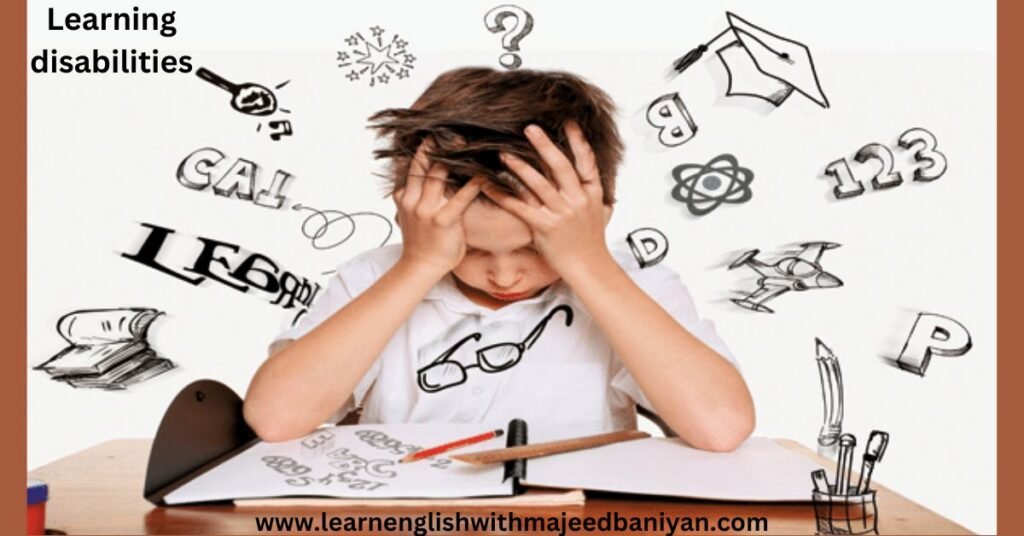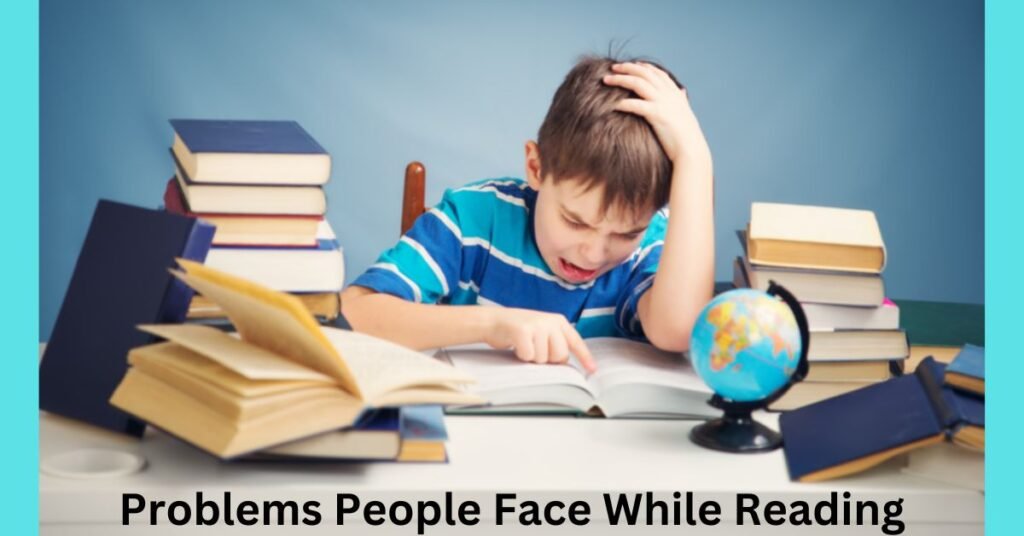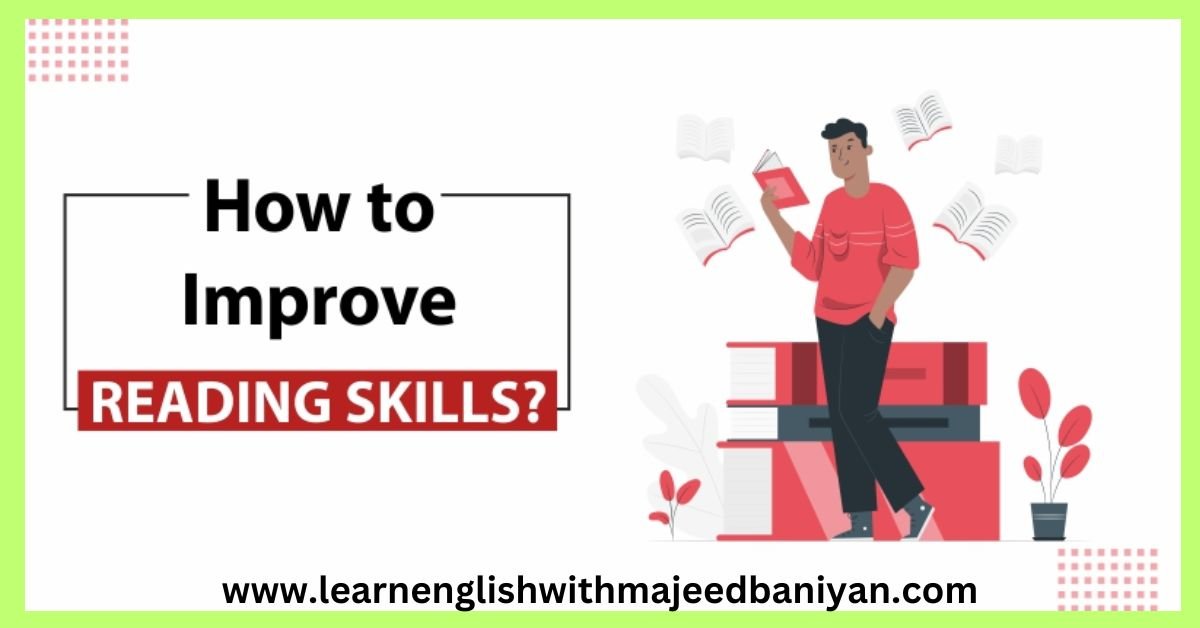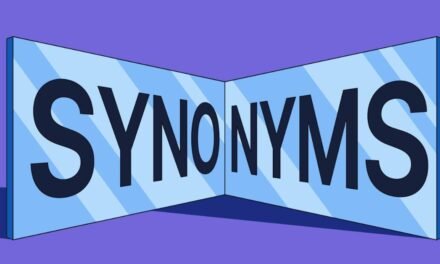How to improve reading?
Reading is a fundamental skill that unlocks a universe of knowledge and enjoyment. It allows us to delve into captivating stories, explore groundbreaking ideas, and gain new perspectives on the world around us. However, for many, the act of it can feel like a chore, especially when faced with complex texts or dwindling comprehension. But fear not, fellow bibliophile (or aspiring one)!

Regardless of your current level, there are a multitude of techniques and practices you can incorporate to significantly improve your experience in it. By actively engaging with the text, bolstering your vocabulary, and establishing a consistent reading habit, you can transform yourself into a confident and proficient reader, ready to conquer any written challenge.
Here are some of the best tips to improve your reading skills:
1. Actively Engage with the Text
- Don’t just passively read. Ask yourself questions as you go, like “What is the main point here?” or “Why is this character acting this way?”.
- Take notes while you read. Write down key ideas, new vocabulary words, or anything else that stands out to you. This will help you remember what you’ve read and improve your comprehension.

2. Build Your Vocabulary
- A strong vocabulary is essential for understanding complex texts. Make a conscious effort to learn new words every day. You can do this by reading challenging materials, using a dictionary, or playing vocabulary games.
- Pay attention to context clues when you encounter unfamiliar words. The surrounding text can often help you figure out the meaning.

3. Practice Regularly
- The more you read, the better you’ll become at it. Set aside some time each day for reading, even if it’s just for 15 or 20 minutes.
- Find reading materials that you enjoy. This will make you more likely to stick with it in the long run.
4. Improve Fluency
- Fluency refers to the ability to read smoothly and accurately. You can improve your fluency by rereading familiar texts, reading aloud, and practicing speed reading techniques (but be sure to focus on comprehension as well).

5. Vary Your Material
- Don’t limit yourself to just one genre. Read a variety of things, such as fiction, non-fiction, newspapers, magazines, and articles. This will expose you to different writing styles and vocabulary words.
6. Use Resources
- There are many resources available to help you improve your skills. Your local library can be a great starting point. They may have online resources or reading programs you can join.
- Online resources like reading comprehension exercises and vocabulary builders can also be helpful.
Bonus tips

Find a quiet place to read where you won’t be interrupted.
Use a dictionary or online thesaurus to look up unfamiliar words.
Take breaks when you need them. If you find your mind wandering, take a few minutes to rest your eyes and then come back to your work and then read.
Discuss what you’re reading with others. Talking about a book or article can help you solidify your understanding of the material.
By following these tips, you can develop strong reading skills that will benefit you in all areas of your life.
Why some people cannot read correctly?
There are a couple of reasons why some people struggle with reading correctly. Here are two main ones:
-
Learning Disabilities:

One common reason is learning disabilities, particularly dyslexia. Dyslexia affects how the brain processes written language. People with dyslexia may have trouble with things like:
-
- Decoding words (sounding them out)
- Recognizing words they already know
- Seeing letters or words jump around
- Difficulty with spelling
-
Vision Issues:

Another reason could be vision problems. While some vision problems can be corrected with glasses or contacts, others can make reading difficult. These might include:
-
- Nearsightedness or farsightedness not properly corrected
- Tracking issues where eyes struggle to follow lines of text
- Visual processing problems where the brain has trouble interpreting what the eyes see
It’s important to note that these are just two reasons, and there could be others. If you’re concerned about someone’s reading ability, it’s always best to consult a doctor or a specialist who can assess the situation and recommend appropriate interventions.
Problems people face while reading.

People of all ages can face various challenges when it comes to reading. Here are some common problems that can occur:
- Difficulties with Text Decipherment:
This refers to trouble sounding out words, especially unfamiliar ones. It’s more common in children who are still developing their word recognition skills, but adults can also struggle if they have a weak foundation in phonics.
- Fluency Issues:
This means slow, labored processing of text with frequent pauses and hesitations. It can be caused by difficulties with deciphering text, but also by a lack of practice or exposure to diverse materials.
- Poor Comprehension:
Even if someone can process the words accurately, they might struggle to understand the meaning of the text. This can be due to factors like limited vocabulary, difficulty following complex sentence structures, or problems with retaining information.
- Lack of Focus or Attention:
In today’s world with many distractions, staying focused on text can be difficult. This can lead to rereading passages, losing track of the plot, or having trouble remembering what was just read.

- Motivation Issues:
Sometimes, people simply don’t find working with text enjoyable. This could be due to past negative experiences, a lack of exposure to engaging materials, or difficulty finding content that matches their interests.
- Learning Disabilities:
As mentioned before, dyslexia is a common learning disability that can significantly impact text processing skills. There are other learning disabilities that can also affect working with text, such as ADHD or visual processing difficulties.
- Vision Problems:
Uncorrected vision problems can make working with text physically difficult and cause strain on the eyes. This can lead to headaches, fatigue, and avoidance of text altogether.
Conclusion
In the ever-expanding world of information, fortifying your reading skills is akin to building a bridge to a vast and vibrant landscape of knowledge. While some may view reading as a passive activity, truly improving your reading unlocks a deeper understanding and appreciation for the written word. Through active engagement with the text, consistent practice, and a commitment to expanding your vocabulary, you can not only become a more efficient reader but also a more insightful one.
The act of improving your reading empowers you to not only grasp complex ideas but also to derive enjoyment from the written word, transforming it from a chore into a portal to endless possibilities. So, embark on this journey of improving your reading and unlock the treasures that await within the pages of a book.









Как провести безопасную химчистку кожаного дивана в Москве самостоятельно.
Чистка кожаного дивана на дому удобна и позволяет избежать необходимости перемещения тяжёлой мебели: [url=https://ximchistka-divanov-kozha.ru]https://ximchistka-divanov-kozha.ru[/url] .
Write only in English Please!
“Как проходит процедура лазерного удаления папиллом?” – “Процедура проводится амбулаторно, начинается с дезинфекции и обезболивания участка, затем лазер направляется на папиллому, чтобы удалить её.”
“What is the procedure for laser removal of papillomas?” – “The procedure is done on an outpatient basis, starting with disinfection and anesthesia of the area, then the laser is directed at the papilloma to remove it.”
инвитро удаление папиллом цена в москве [url=http://udalenie.com.ru/]http://udalenie.com.ru/[/url] .
Write only in English PLease!
Sweet site, super pattern, real clean and utilize pleasant.
I truly prize your work, Great post.